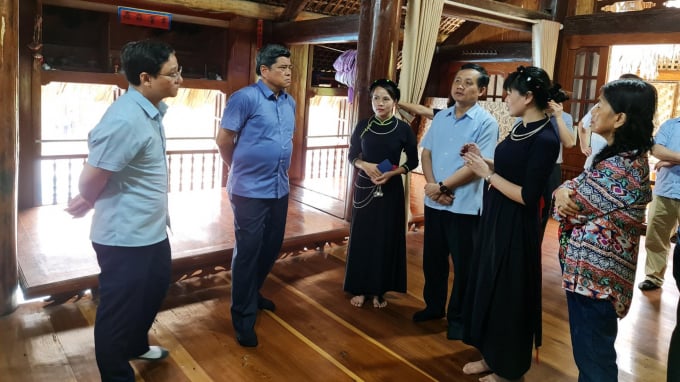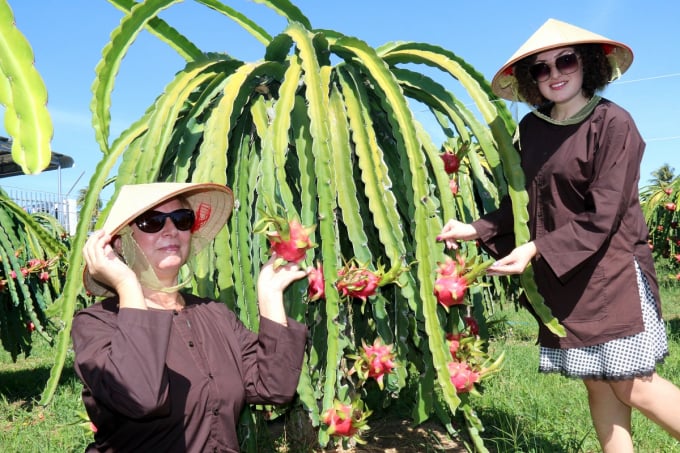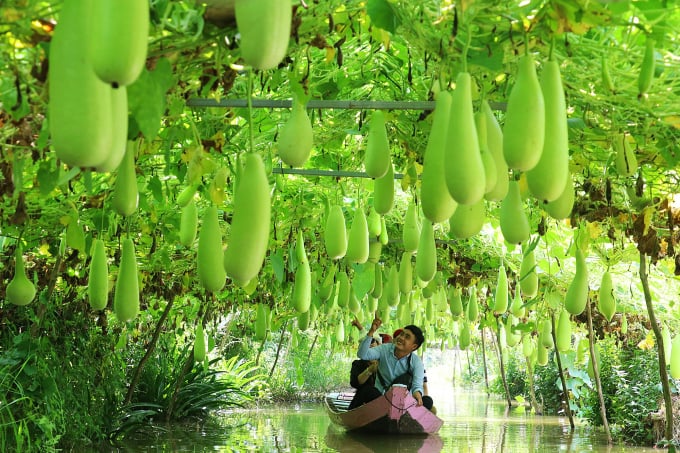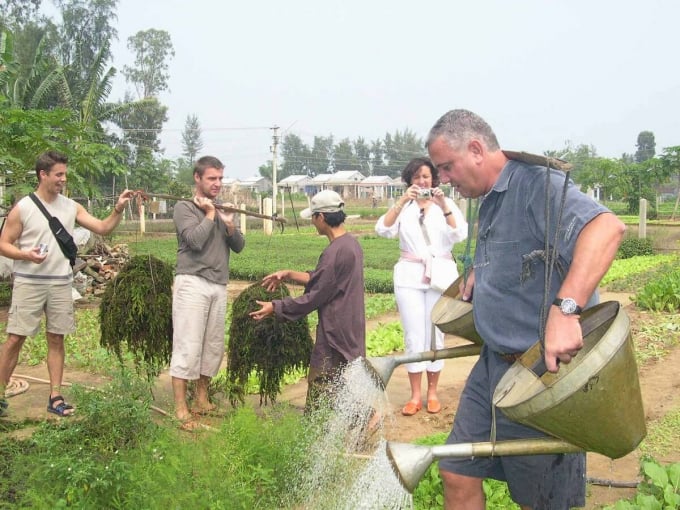November 22, 2025 | 20:54 GMT +7
November 22, 2025 | 20:54 GMT +7
Hotline: 0913.378.918
November 22, 2025 | 20:54 GMT +7
Hotline: 0913.378.918
In recent years, many rural tourist attractions have been formed which values are imbued with each region's culture and ecology as the foundation. This type of tourism gives out a unique and flavorful experience to visitors. But rural tourism requires specific, national-level programs to present its potential in full bloom.
The Northern Midlands and Mountains is a land of multiculturalism enveloped with many characteristics and nuances from 32 residing ethnic groups. This land develops many forms of community-based tourism by combining experiencing ethnic minority villages, highland ethnic culture, and local festivals and folklore.
However, due to spontaneous development, many villages do not pay attention to preserving the beauty of nature, leading to the destruction of the landscape and environment. Some tourist gathering points are overcrowded, experience services in many places are the same, so a decrease in visitors in the past time is inevitable.

MARD Deputy Minister Tran Thanh Nam (2nd from left) visiting stilt houses and experiencing the life of the Northern ethnic minorities.
The Red River Delta has many advantages in rural tourism development thanks to the connection with Hanoi tourist centers. Its signature feature lies in ancient villages, traditional agricultural villages, lively village spaces and beautiful countryside landscapes.
However, most localities have not yet fully utilized the strengths of large fruit and specialty rice growing areas to develop tourism. Many rural tourist attractions in the region only choose to combine popular tourism resources to attract tourists.
The North Central is characterized by a long coastline and a unique culture, so it has soon formed various types of tourism such as eco-tourism, cultural and historical tourism, and traditional craft village tourism.
But reality shows that Northern Central rural tourism products quickly make tourists lose interest due to inconvenient transportation access. Tourists also have a limited choice of experience services.

Foreign tourists visiting the dragon fruit garden in Binh Thuan.
The South Central Coast is a region with strengths in sea and island tourism and eco-tourism. Its unique feature of sea and island is favorable for various types of tourism in combination with nature reserves, sand dunes, and coastal rapids.
The South Central Coast has exploited quite well community-based tourism, taking full advantage of local history, culture, lifestyle, and community festivals. Tourists can partake in a variety of experiences from the locals’ daily life to cultivation activities. They can enjoy traditional cuisine, row boats, go fishing with local fishermen, and stay in high-quality accommodation facilities in the countryside.
With the advantage of the largest tourist center in the country, Ho Chi Minh City, the Southeast has various types of rural tourism such as community-based, ecological experience tourism on farms and specialty fruit orchards or experience tourism in high-tech agricultural growing areas.
There are indeed many ecological and agricultural tourism programs in the Southeast, but most of them are established in Ho Chi Minh City.

River tourism in the gardens is the signature of the Mekong Delta.
Thanks to a system of unique tourism resources associated with rivers, orchards, floating markets and craft villages, the Mekong Delta has the advantage of developing rural tourism associated with the interlaced system of canals and rivers surrounded by fruitful orchards.
Tourism associated with river landscapes and traditional craft villages has long been established in the Mekong Delta. Many localities in the region have planned and invested in building hundreds of tourist routes and attractions.
Although the number of visitors to the area has recently grown, the number of tourists staying in rural areas is very low (20-30%). The tours are usually connected to Ho Chi Minh City (accounting for 80%), and most of them are short-day tours.
Rural tourism development is one of the solutions and key tasks of the 2021-2025 National Target Program on New Rural Construction. This solution lays a foundation for changing from agricultural production thinking to rural economic development, contributing to supporting localities so that they can effectively and sustainably implement new rural criteria.
In the new period, rural tourism will aim toward sustainability, inclusiveness and multi-value in line with market demands. Each area needs to effectively use, preserve and promote the signature regional ecological environment, traditional cultural values, craft villages, OCOP products, and agricultural activities. The development involves digital transformation, innovation and creativity.

Rural tourism provides a stable source of income in foreign countries.
The 2021-2025 National Target Program on New Rural Construction sets out clear objectives: develop and standardize rural tourist attractions and products; each province and city strives to have at least one recognized rural tourist attraction associated with local advantages in agriculture, culture, craft villages or ecological environment; at least 500 rural tourism service business establishments are to be ranked or recognized to meet tourist service standards.
The total funding for program implementation is estimated at approximately VND 2,500 billion. This includes the direct support central budget from the National Target Program on New Rural Construction is approximately VND 500 billion; local budget VND 550 billion; integrated capital from other programs, projects and schemes VND 560 billion; credit capital and mobilized capital from socialized resources VND 890 billion.
In order to effectively implement the program, six solutions have been proposed for the coming time:
Translated by Samuel Pham

(VAN) Results from the Sustainable Durian Model Project in Dak Lak have confirmed the critical role of Yara Viet Nam in transferring advanced nutritional solutions to farmers.

(VAN) In Tuyen Quang province, livestock farmers have introduced effective models and innovative practices that significantly strengthen African Swine Fever prevention and control efforts.

(VAN) This is the study conducted by IRRI and Can Tho University on the rice straw value chain in Mekong Delta showing an economic potential of more than 6.6 trillion VND/year.

(VAN) By participating in cooperative economics, many farmers in Tay Ninh have overcome hardship, mastered clean dragon fruit cultivation techniques.

(VAN) The crossbreeding program in the former Binh Dinh province (now part of Gia Lai) has shown signs of decline, and urgent measures are needed to revive it and sustain past achievements.

(VAN) The agricultural sector agreed on a roadmap to pilot the MRV protocol and expand low-emission rice production from the 2025-2026 winter-spring crop.

(VAN) Agricultural extension officers in Quang Ninh do more than transmit knowledge; they have become a steadfast support system for farmers on the path to sustainable agricultural development.